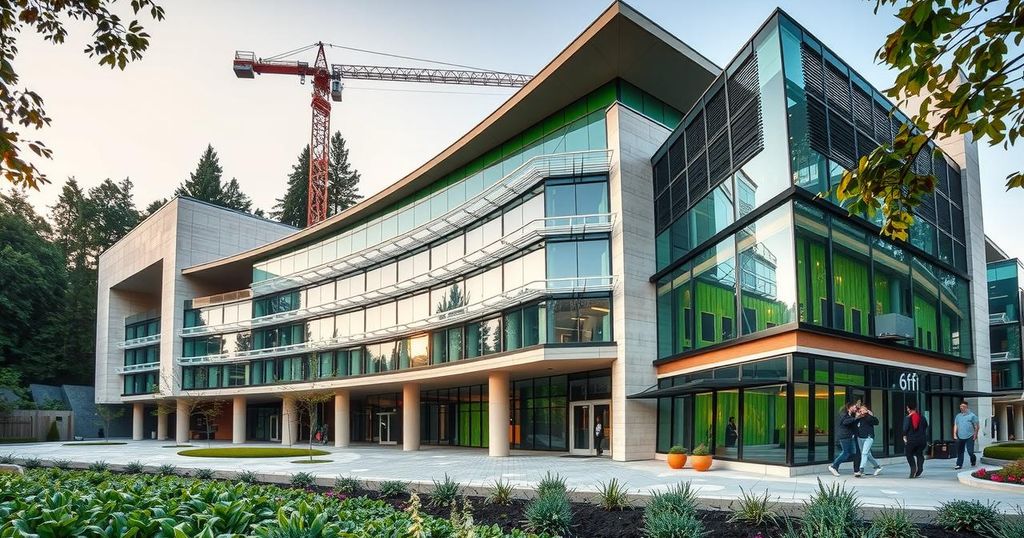AI
ARTIFICIAL INTELLIGENCE, BERKELEY, DATA CENTERS, DIGITAL TRANSFORMATION, DOUDNA, ENERGY, IGI, IGI - BAKAR LABS, INNOVATION, INNOVATION ZONE, JENNIFER DO, JENNIFER DOUDNA, LOS ANGELES, NORTH AMERICA, SCIENCE_TECHNOLOGY, U. S, UC, UC BERKELEY, UNITED STATES, VENTURE CAPITAL
Liam Kavanagh
0 Comments
UC Berkeley to Construct New CRISPR Research Facility in Innovation Zone
- UC Berkeley’s Innovation Zone adds a new laboratory building.
- The building will greatly expand lab space for the Innovative Genomics Institute.
- The IGI-Bakar Labs building aims to foster collaboration and innovation.
- This facility will be the largest university biotech incubator in the US.
- Startups have successfully outgrown existing incubator spaces at Bakar Labs.
New Laboratory Building for CRISPR at UC Berkeley
In a significant stride for gene editing and innovation, UC Berkeley officially announced the construction of a new laboratory building aimed at advancing the applications of CRISPR technology. Today, during a board meeting, the UC Regents greenlighted the Innovative Genomics Institute-Bakar Labs building, a seven-story facility set to significantly augment laboratory space for health and agricultural advancements. This new building, projected to open for business during the academic year of 2028-29, is expected to reinforce UC Berkeley’s position as a leader in biotechnology and innovation.
Impact of the New Facility on Gene Editing Research
The Innovative Genomics Institute (IGI), an entity co-founded by CRISPR pioneer Jennifer Doudna, will benefit immensely from this facility as it responds to the growing demand for gene-editing research. Doudna herself commented on the importance of this expansion, stating, “The IGI has doubled in size over the past five years, and this new facility represents a critical step in advancing our research capabilities.” The building will feature dedicated spaces aimed at fostering groundbreaking research and collaboration between startups and researchers, ultimately enhancing the development of CRISPR applications that can tackle some of the world’s dire challenges.
Fostering Startups Through Collaboration
Moreover, the synergy created through close proximity between IGI and Bakar Labs is expected to foster more startup growth. It looks like the building will help facilitate interactions that are invaluable yet informal, leading to new CRISPR-focused ventures sprouting in the heart of Berkeley. With this initiative, the Bakar Labs will emerge as the largest collection of university-operated biotech and innovation incubators in the country—a remarkable feat in itself. David Schaffer, director of Bakar Labs, highlighted that the combination of IGI’s research prowess and Bakar Labs’ entrepreneurial spirit is poised to amplify outcomes for biotech innovations.
The UC Regents’ approval of the IGI-Bakar Labs building marks a significant leap for both CRISPR technology and the capacity for innovation at UC Berkeley. This development not only illustrates the university’s commitment to advancing research but also emphasizes the importance of nurturing an entrepreneurial ecosystem. With state-of-the-art facilities dedicated to CRISPR and biotechnology, Berkeley is set to become a central hub for innovation affecting healthcare, agriculture, and beyond.




Post Comment